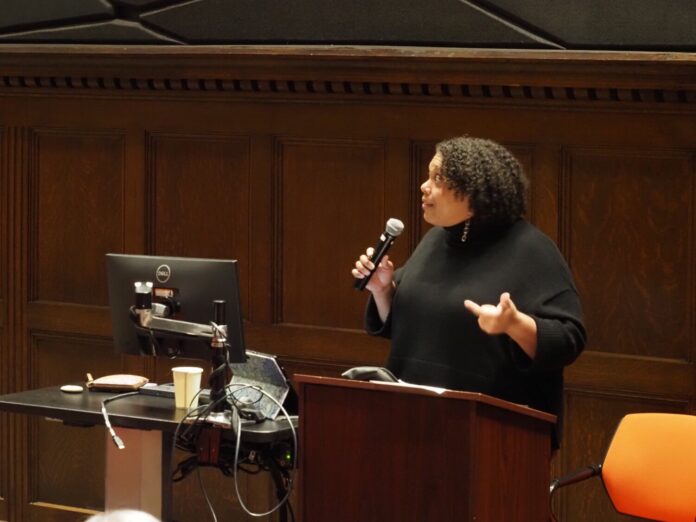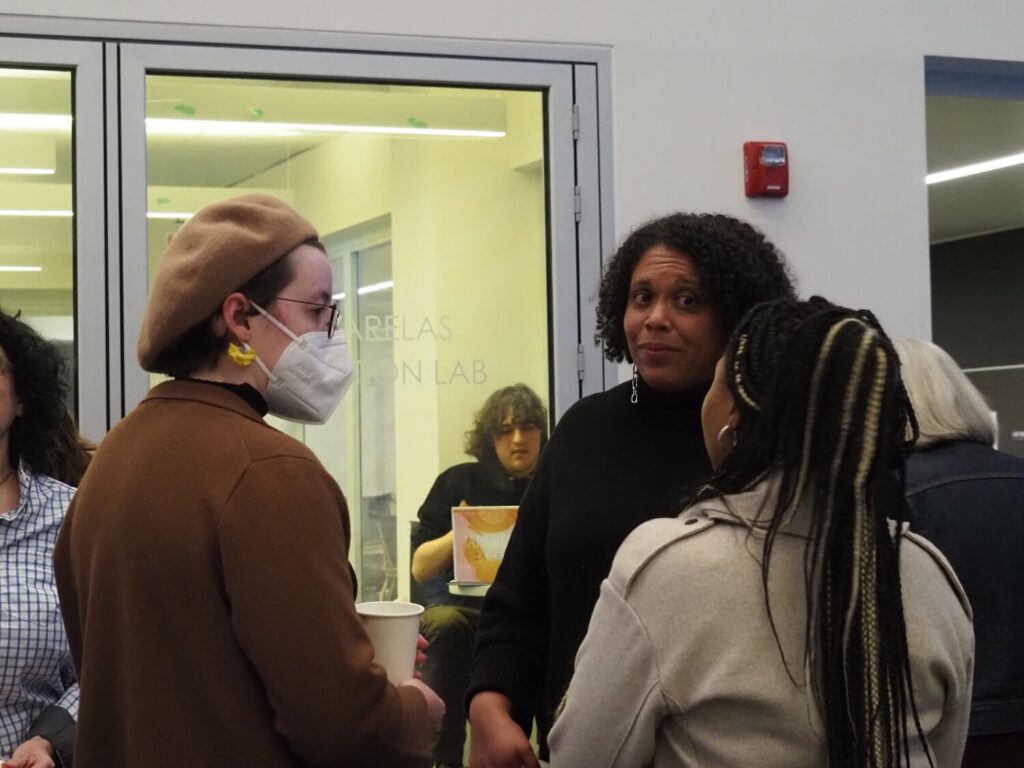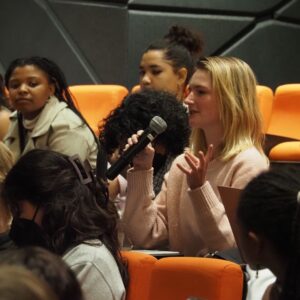
Dominique Day, a member of the United Nations (U.N.) Working Group of Experts on People of African Descent, visited Occidental as the keynote speaker for U.N. Week. Occidental’s U.N. Week is an opportunity for faculty, staff, students and visitors from the U.N. to reflect on the progress the organization has made and discuss where it has room to grow, according to Jacques Fomerand, an Occidental professor and organizer of U.N. Week.
Day has worked as a public defender and human rights attorney and also leads justice access platform DAYLIGHT. The mission of the Working Group of Experts on People of African Descent is to study the problems of racial discrimination faced by people of African descent and gather all relevant information from governments, non-governmental organizations and other sources to report to the U.N., according to the group’s website.

At her talk titled “Can the U.N. Solve Racism?” Day said she sees her role in social justice as a listener and advocate. She said that the answer to the title of her speech seems obvious and negative. However, Day said, the U.N. has a responsibility to utilize its resources and status to address the ways anti-Black racism manifests in discriminatory practices in countries around the world. Day spoke about the similarities of insidious anti-blackness she has uncovered between the United States and European countries, and said she wants to use the U.N. to bring awareness to these issues.
“I wanted to be a part of bringing a conversation about race and racism to the U.N. about how we’re actually reinforcing race, racism, racial hierarchy, in all sorts of transnational ways,” Day said. “I also felt like that was something I could do, and I could do well.”
Day said the working group is one of the special procedures of the U.N. The special procedures are groups of either thematic or country-based fact finding experts who are appointed by the U.N. Human Rights Council to gather information. Fomerand said the special procedures have been described as the jewel of the United Nations in the field of human rights.
According to Day, what makes her work so special is bringing the lived experiences of the people she talks to directly to the U.N.
“It’s really important to recognize that the conversation that’s happening in Geneva doesn’t bear a lot of resemblance to the conversations that are happening in Los Angeles, or in Brixton or in Paris,” Day said. “That space that we should be holding around human rights needs to be actively informed by communities and their realities and their priorities.”
Day said that since the positions in the working group are unpaid and done in addition to normal work — an additional three to six months of work-time per year — the work comes from personal commitment to the mission of the group.
Max Manzare (junior) said U.N. Week is important to students at Occidental. He said that Occidental students are involved, caring and globally aware.

“The United Nations is a means to an end in that regard,” Manzare said. “As an institution that holds dialogue regarding issues that are at the forefront of my peers’ minds, we look to the U.N. with the hope that it will aid in assuring our futures.”
Day said working within a bureaucratic institution like the U.N. can be frustrating, and the people she talks to for the working group often express similar frustration. She said she tries to be as honest as she can about the harm the U.N. has done and explain that her goal is to bring lived experiences back to the U.N., to make global governments aware of issues they previously ignored. Still, Day said that the U.N. does not do as much as it should for the communities it claims to support.
“You know, sometimes I do think activism and anger should be really closely linked. I understand that my face and all of the faces that are representing the U.N. does a lot more for the U.N. than it necessarily does for the communities we’re supposed to be advocating on behalf of,” Day said. “And I think if I’m going to be used in that way, the very least I can do is really be a very strong voice for the mandate that I’m there to advance, which is really dismantling anti-Black racism.”
Day said she relies on finding joy in small moments, something she has needed to sustain herself through her work, especially during her time as a public defender in New York City. It was at the height of mass incarceration, she said, and she had to bare loss after loss and see the tiny amounts of evidence sufficient for conviction.
“I think that was the moment when I learned there’s no rock bottom. Things can always get worse,” Day said. “Things can’t change on a dime and anytime you get even the smallest win, you have to celebrate it big.”
According to Day, the most fulfilling places to find joy can be within something as meaningful as a found family and as small as a smile.
“You actually need to celebrate every small moment, every piece of joy, every flower and all of that stuff you brush off as unimportant — those are opportunities to really feed your soul,” Day said, “And so I try to really hold on to those, and it gives me really quite a lot. It gives me a lot of resilience in this space.”
Day said some of the things that give her the most joy also feed the intellectual creativity that drives her work. She has derived inspiration for legal arguments and theories from students and young activists, as well as novels and pieces of Black art, according to Day.
“When I’m feeling uninspired, I work to decolonize my thought process by asking myself, ‘How do I take the lesson of this song or this piece of dance, which incorporates so much important history, and translate that into legal advocacy or policy advocacy?’” Day said.
Contact Eliza Kirk at ekirk@oxy.edu
![]()






























